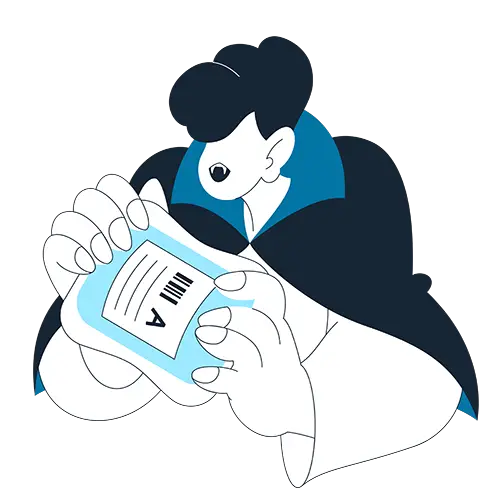How to Obtain a Nova Scotia Drivers License
A Step-by-Step Guide
 Obtaining a Nova Scotia Drivers License is crucial for anyone looking to drive legally in this beautiful Canadian province. Whether you’re a new driver, a visitor, or a new resident, understanding the process is key to getting on the road safely and confidently. The Registry of Motor Vehicles oversees this important procedure, ensuring all drivers meet the requirements.
Obtaining a Nova Scotia Drivers License is crucial for anyone looking to drive legally in this beautiful Canadian province. Whether you’re a new driver, a visitor, or a new resident, understanding the process is key to getting on the road safely and confidently. The Registry of Motor Vehicles oversees this important procedure, ensuring all drivers meet the requirements.
This guide will walk you through the steps to get your Nova Scotia Drivers License, including the Graduated Driver Licensing System for new drivers. You’ll learn about the requirements for new residents and visitors with a foreign driver’s license and get tips for passing your driving test. We’ll also cover how to use Access Nova Scotia for license renewal and other services, making the process as smooth as possible for you.
Understanding the Nova Scotia Graduated Driver Licensing System
The Nova Scotia Graduated Driver Licensing system is designed to help new drivers gain experience and skills gradually, with the aim of reducing the risks associated with driving. This system consists of three stages: the learner’s license (Class 7), the newly licensed driver’s license (Class 5N), and the restricted individual stage (Class 5R with condition 47).
Steps to Obtain Your First Nova Scotia Driver's License
If you’re a new driver in Nova Scotia, you’ll need to go through the Graduated Driver Licensing system to obtain your first driver’s license. This system is designed to gradually help you gain experience and skills, ensuring you become a safe and responsible driver. Here are the steps you’ll need to follow:
Preparing for the Written Test
Before applying for your learner's license, you must prepare for the written test. This test will assess your knowledge of the rules of the road and traffic signs. To get ready:
Study the Nova Scotia Driver's Handbook thoroughly. You can get a copy at any Access Nova Scotia location or view it online. Take practice tests to familiarize yourself with the format and types of questions you'll encounter. Ensure you understand all the key concepts, such as right-of-way rules, speed limits, and safe driving practices. Once you feel confident in your knowledge, you can visit an Access Nova Scotia location to take the written test. You'll need to provide identification documents and pay the applicable fee.Passing the Road Test
After holding your learner's license for the required time and gaining driving experience, you'll need to pass a road test to progress to the next stage. To prepare for your road test:
Practice driving in various conditions, such as in different weather and at different times of day. Focus on mastering key skills, such as smooth acceleration and braking, proper lane changes, and parallel parking. Consider taking lessons with a certified driving instructor to refine your skills and get expert feedback. When you're ready, you can book your road test appointment through the Registry of Motor Vehicles. On the day of your test, make sure to bring your learner's license, a roadworthy vehicle, and a licensed driver to accompany you.Completing Driver Education
While driver education isn't mandatory in Nova Scotia, it can help you become a safer, more skilled driver. Plus, completing an approved course can reduce the time you need to hold your learner's license before taking the road test.
Driver education programs typically include both classroom instruction and in-car training. You'll learn about topics such as: Defensive driving techniques Sharing the road with other users, such as pedestrians and cyclists Handling emergency situations The effects of drugs and alcohol on driving ability Look for a driver education program approved by the Registry of Motor Vehicles to ensure it meets provincial standards. After completing the course, you'll receive a certificate that you can present when booking your road test.Requirements for New Residents and Visitors
If you’re a new resident of Nova Scotia or a visitor to the province, it’s essential to understand the requirements for obtaining a driver’s license. The Registry of Motor Vehicles has specific guidelines to ensure a smooth transition and maintain road safety.
By understanding the requirements for exchanging an out-of-province or foreign driver’s license and familiarizing yourself with Nova Scotia’s driving regulations, you’ll be well-prepared to navigate the roads safely as a new resident or visitor to the province. Remember to visit Access Nova Scotia within the required timeframes and provide all necessary documentation to ensure a smooth transition to driving in Nova Scotia.
Exchanging an Out-of-Province License
New residents who hold a valid driver’s license from another Canadian province or territory can usually exchange their license for a Nova Scotia driver’s license without needing a road test. To do so, you must visit an Access Nova Scotia location within 90 days of becoming a resident. You must provide identification documents, such as your current driver’s license and proof of residency, and pay the applicable fees.
If you’re a visitor to Nova Scotia with a valid foreign driver’s license, you can drive in the province for up to 90 days without obtaining a Nova Scotia driver’s license. However, if you plan to stay longer or become a resident, you must exchange your foreign driver’s license for a Nova Scotia one within 90 days.
Reciprocal License Agreements
Nova Scotia has reciprocal license agreements with several countries, allowing holders of valid driver’s licenses from these jurisdictions to exchange their licenses without requiring written or road tests. These countries include:
United States – Austria – Germany – South Korea – United Kingdom – Taiwan
To exchange your license under a reciprocal agreement, you must provide your current driver’s license, proof of identity, and proof of residency. You must also pass a vision test and pay the applicable fees.
If your country is not listed above, you’ll need to follow the process for obtaining a Nova Scotia driver’s license as a new driver. This involves passing a written test to obtain your learner’s license, holding your learner’s license for a minimum of 12 months (or 9 months with an approved driver education course), and then passing a road test to obtain your newly licensed driver’s license.
It’s important to note that all new residents and visitors must familiarize themselves with Nova Scotia’s traffic laws and regulations. The Nova Scotia Driver’s Handbook is an excellent resource for learning about road signs, traffic rules, and safe driving practices. You can obtain a copy of the handbook at any Access Nova Scotia location or view it online.
Tips for Passing Your Nova Scotia Driving Test

Studying the Driver’s Handbook
One of the most important steps in preparing for your Nova Scotia driving test is thoroughly studying the Driver’s Handbook. This comprehensive guide, provided by the Registry of Motor Vehicles, covers all the essential information you need to know to become a safe and responsible driver in the province.
The handbook is divided into easy-to-navigate chapters, covering topics such as road rules, traffic signs and pavement markings, vehicle safety, and adverse driving conditions. Pay special attention to the Graduated Driver Licensing system sections, as understanding these requirements is crucial for new drivers.
To maximize your study time, schedule and dedicate regular sessions to reviewing the handbook. Take notes, highlight key points, and test your knowledge with the practice questions provided. Remember, the more familiar you are with the content, the more confident you’ll feel on test day.
Practicing Safe Driving Habits
While studying the Driver’s Handbook is essential, putting that knowledge into practice is equally important. As you prepare for your driving test, focus on developing safe driving habits that will serve you well both during the test and throughout your driving career.
Start by always wearing your seatbelt and adjusting your mirrors and seat before driving. Maintain a safe following distance, typically 2-3 seconds behind the vehicle in front of you, and increase that distance in adverse weather conditions.
Use your turn signals when changing lanes or turning, and check your blind spots by performing shoulder checks. Obey posted speed limits, so adjust your speed according to road and weather conditions.
When approaching intersections, scan for pedestrians, cyclists, and other vehicles. Yield the right-of-way when required, and never assume that other drivers will yield to you.
Practice smooth and gradual acceleration, braking, and steering to maintain control of your vehicle. Avoid distractions such as cell phones, eating, or adjusting the radio while driving.
You’ll be well-prepared to demonstrate your skills during the driving test and beyond by consistently practicing these safe driving habits. Remember, safe driving is not just about passing the test; it’s a lifelong commitment to responsible road use.
In addition to studying the Driver’s Handbook and practicing safe driving habits, consider taking a driver training course from an approved provider. These courses can help you gain valuable experience and feedback from qualified instructors, increasing your chances of success on your first attempt at the driving test.
On your test day, arrive at the Access Nova Scotia location with plenty of time to spare. Bring a roadworthy vehicle and your valid learner’s license, and remember to relax and focus on demonstrating the safe driving skills you’ve practiced.
By following these tips and dedicating yourself to thorough preparation, you’ll be well on your way to passing your Nova Scotia driving test and earning your driver’s license. Good luck, and remember always to prioritize safety on the road!
FAQs
How quickly can I obtain a driver’s license in Nova Scotia after passing the road test?
A: After passing the road test, you can immediately pay the required fee and receive a temporary document valid for 30 days. Your official driver’s license card will be mailed to you within 14 days of visiting an Access Nova Scotia or Registry of Motor Vehicles Office.
What are the different stages of obtaining a driver’s license in Nova Scotia?
A: Nova Scotia’s Graduated Driver Licensing system consists of three stages: the Learner’s License phase, the Newly Licensed phase, and the Restricted Individual phase.
What is the process for getting a driver’s license in Nova Scotia?
A: To get a driver’s license in Nova Scotia, you must be at least 16 years old and pass both a written and a vision test. After meeting these initial requirements, you will enter the Graduated Driver Licensing (GDL) program, which includes three stages: the learner’s license, the Class 5N (novice) license, and, ultimately, the full Class 5 license.
How do I transfer my out-of-province driver’s license to a Nova Scotia driver’s license?
A: If you become a resident of Nova Scotia, you must apply for a Nova Scotia driver’s license and register your vehicle at the Registry of Motor Vehicles within 90 days. During this process, you must surrender any out-of-province driver’s license you currently hold.